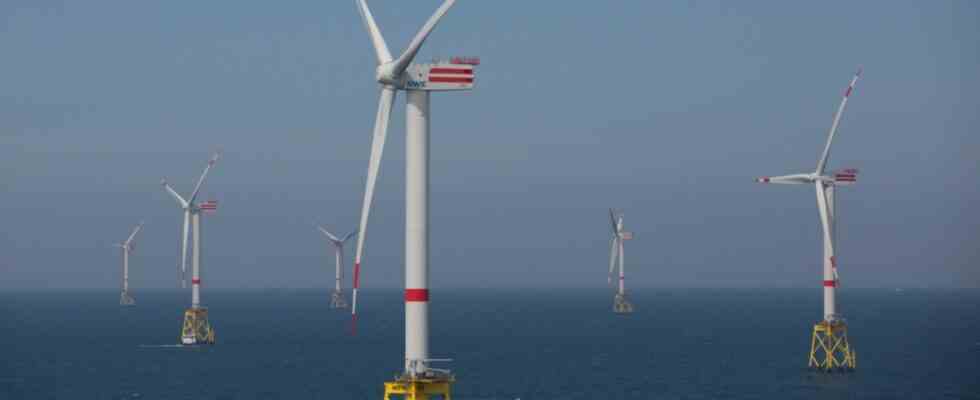The lines stretch from Flensburg to Oberammergau, they connect wind farms in the North Sea with the Zugspitze – and may soon be in the hands of the federal government. Because it could soon take over one of the four major German power grids, completely. The Dutch Tennet Holding announced on Friday that it intends to “start talks with the German government to explore the possibility of a complete sale of German activities (…)”. The chances of that happening aren’t bad at all. “We welcome that,” said the Ministry of Economic Affairs on Friday. Discussions on this have been going on for months, and corresponding considerations have been going on for years.
In 2010, the Dutch bought the network of the Eon group. In the years that followed, it increasingly proved to be the central axis of the energy transition. Not only did Tennet connect numerous wind farms in the North Sea, but two of the major electricity highways that are supposed to transport wind power southward also run through the group’s grid area: Suedlink and Suedostlink. Both promise good returns from electricity transport in the future. But for now it needs a lot of capital – much to the chagrin of the Dutch government. Because Tennet is a state-owned company, and Den Haag has preferred to raise equity for its own power grid for some time, regardless of returns.
In Germany, on the other hand, the deal could become part of a larger plan. The country is divided into four large transmission networks. In addition to Tennet, there is Amprion in the west, 50 Hertz in the east and TransnetBW in the south-west. The federal government already holds 20 percent of the 50Hertz network via the state bank KfW – the old federal government anticipated Chinese investors by buying it. Discussions are currently underway about KfW participating in the TransnetBW network: the bank has the right of first refusal for almost a quarter of the shares. Everything indicates that the federal government will become the largest German network operator.
Consumer advocates react cautiously
There would be reasons for that. “The network expansion is stuck in so many places that state involvement would at least be understandable,” says economist Achim Wambach, President of the Mannheim Leibniz Center for European Economic Research. In any case, distortions of competition are not to be feared, after all, the transmission networks are monopolies that do not compete with each other. They are regulated by the Federal Network Agency. And Schleswig-Holstein’s energy transition minister Tobias Goldschmidt (Greens) can also gain a lot from the Tennet purchase. This could help “ensure the necessary momentum for network expansion in the long term”. However, it requires “decent financial clout”. The Federal Ministry of Economics also points to the great importance of rapid grid expansion for the energy transition.
However, not everyone is equally enthusiastic about the power grid ambitions. From circles in the FDP-led Ministry of Finance, it is said that a state network company should be “viewed critically”. In case of doubt, such a construction has “more disadvantages than advantages”. Therefore, it can only be a temporary solution.
The FDP housekeeper Otto Fricke also has a stomach ache. “I can understand that when it comes to energy, people are thinking about a significant involvement of the state in the interests of national security,” he says Süddeutsche Zeitung. “But I would have serious doubts about a total sale. At least when it comes to buying from a friendly EU country.” Fricke, who chairs the German-Dutch parliamentary group, dislikes the idea that the German state would then be the legislator, owner and regulator of the energy market. He would prefer a bilateral cooperation agreement on energy security. Consumer advocates are also cautious. It is less important who operates the power grid, says Thomas Engelke, an energy expert at the Federal Association of Consumer Organizations. “It is crucial that the investments necessary for the energy transition are made.”
The toughest task now lies ahead of the officials tasked with negotiating the deal. Because: what is a network across the republic worth? The government in The Hague is also breathing down the neck of the opposition, which is demanding insight into the talks. The Dutch Ministry of Finance recently informed MPs that it would be clearer in mid-March at the earliest. But you shouldn’t divulge too much, as that would damage your negotiating position. After all, you want “conditions that are acceptable to the Dutch state”.

